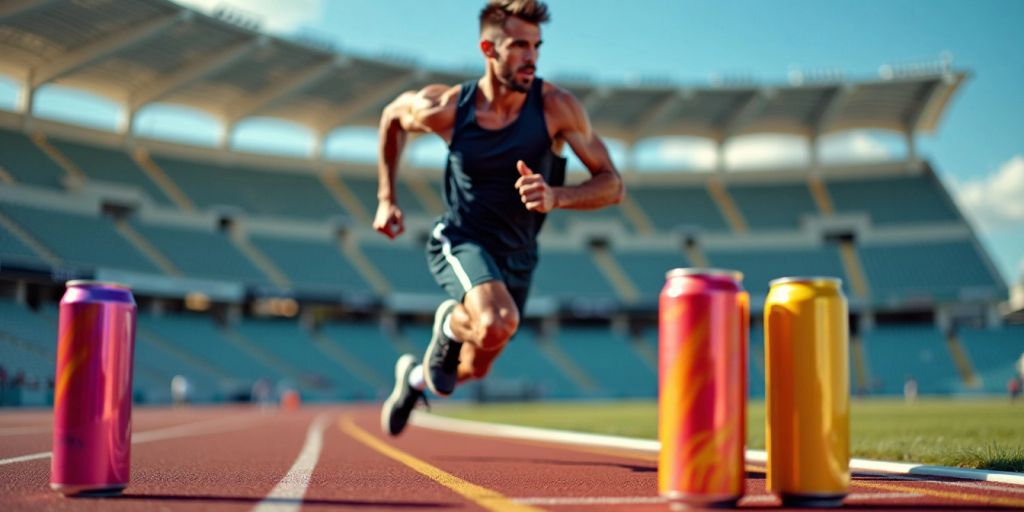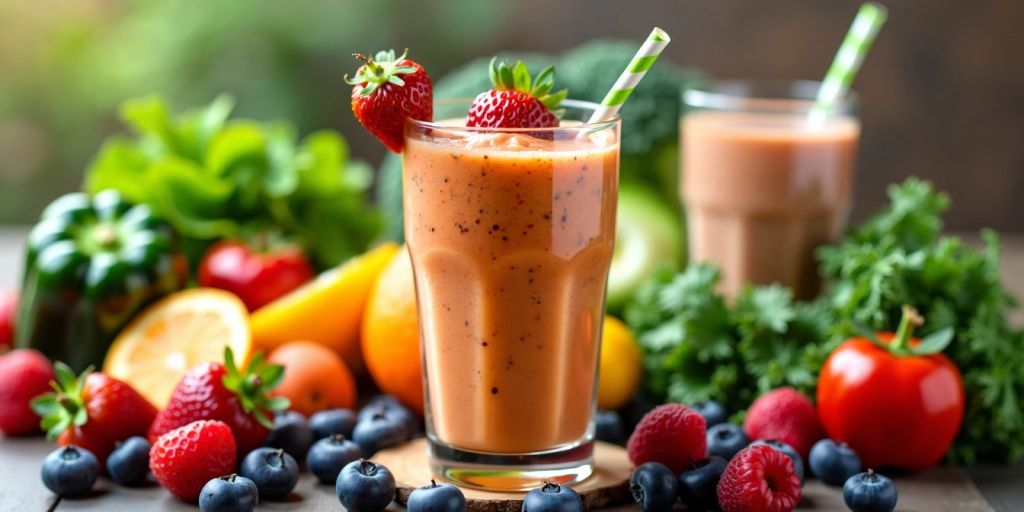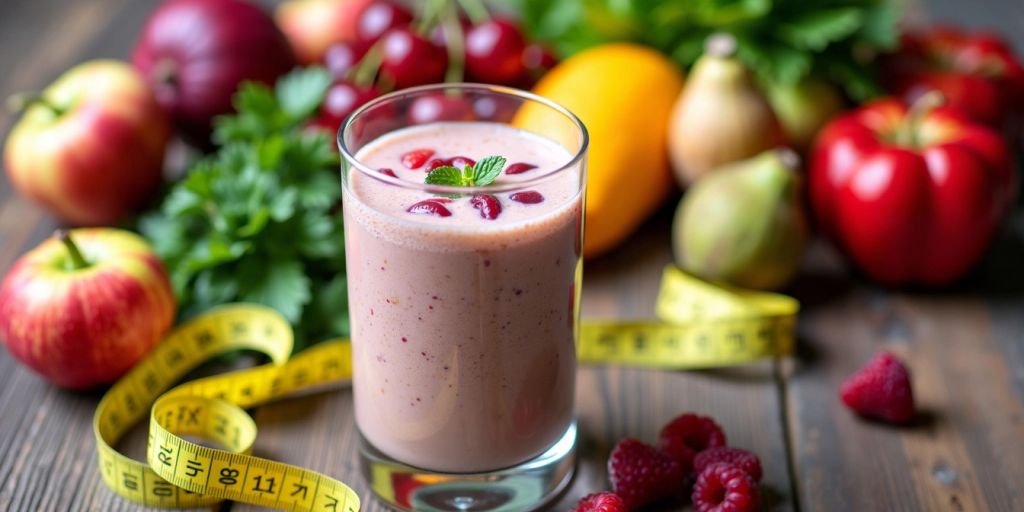Energy drinks are a popular choice among athletes looking to boost their performance and endurance. These beverages can help improve stamina, focus, and muscle recovery. However, it's important to understand how to use them effectively and safely. This guide will explore everything athletes need to know about energy drinks, from their benefits and risks to choosing the right one and timing consumption.
Key Takeaways
- Energy drinks can enhance athletic performance by boosting endurance, focus, and muscle recovery.
- Common ingredients in energy drinks include caffeine, vitamins, amino acids, and electrolytes.
- It's crucial to choose the right energy drink based on your specific needs and to read ingredient labels carefully.
- Timing your energy drink consumption can impact its effectiveness, with different benefits for pre-workout, during workout, and post-workout.
- Overconsumption of energy drinks can lead to health risks such as dehydration and caffeine dependence.
Understanding the Role of Energy Drinks for Athletes
What Are Energy Drinks?
Energy drinks are beverages designed to give you a quick boost of energy. They usually contain caffeine, sugar, and other ingredients like vitamins and amino acids. These drinks are popular among athletes because they can help improve performance and endurance.
Why Athletes Use Energy Drinks
Athletes use energy drinks to get an extra burst of energy during training or competitions. These drinks can help reduce fatigue and improve focus, making it easier to perform at your best. They are especially useful for sports that require quick decision-making and precise movements.
Common Ingredients in Energy Drinks
Most energy drinks contain a mix of caffeine, sugar, and other ingredients like taurine and B vitamins. Some also include electrolytes to help with hydration. Here's a quick look at some common ingredients:
- Caffeine: Boosts alertness and reduces the perception of effort.
- Sugar: Provides a quick source of energy.
- Taurine: Supports muscle function and reduces cramps.
- B Vitamins: Help convert food into energy.
- Electrolytes: Maintain hydration and electrolyte balance.
Understanding the ingredients in your energy drink can help you make better choices and use them more effectively.
Benefits of Energy Drinks for Athletic Performance
Boosting Endurance and Stamina
Energy drinks are known for their ability to boost endurance and stamina. The caffeine in these drinks helps athletes push through longer and more intense workouts by reducing the perception of effort and fatigue. This means you can train harder and longer without feeling as tired.
Enhancing Focus and Reaction Time
Many energy drinks contain ingredients like nootropics, which can enhance focus and reaction time. This is especially useful for sports that require quick decision-making and precise movements. Improved mental clarity can give athletes a competitive edge.
Supporting Muscle Recovery
Ingredients such as branched-chain amino acids (BCAAs) and taurine in energy drinks aid in muscle recovery. These components help reduce muscle soreness and speed up recovery time, allowing athletes to get back to training faster and more effectively.
Energy drinks can be a game-changer for athletes when used correctly. They not only boost physical performance but also enhance mental sharpness, making them a valuable tool in any athlete's regimen.
Choosing the Right Energy Drink for Your Needs
Factors to Consider
When picking an energy drink, it's important to think about your specific needs and goals. Are you looking for a quick energy boost, or do you need something to help with endurance? Knowing what you need can help you make the best choice. Here are some factors to consider:
- Caffeine Content: Check how much caffeine is in the drink. Too much can make you jittery, while too little might not give you the boost you need.
- Sugar Levels: Some energy drinks are loaded with sugar, which can lead to a crash later. Look for low-sugar or sugar-free options if you're concerned about this.
- Additional Ingredients: Look for drinks that include vitamins, amino acids, or electrolytes, which can offer extra benefits.
Popular Brands and Their Features
There are many energy drink brands out there, each with its own unique features. Here are a few popular ones:
| Brand | Key Features |
|---|---|
| Red Bull | Moderate caffeine, includes B vitamins |
| Monster | High caffeine, various flavors, includes taurine |
| Gatorade | Electrolytes, low caffeine, good for hydration |
| Proper Wild | Plant-based, low caffeine, no artificial sweeteners |
Reading Labels and Ingredients
Reading the label is crucial to understanding what you're putting into your body. Always check the ingredient list for things like caffeine content, sugar levels, and any additional ingredients like vitamins or amino acids. This can help you avoid any unwanted side effects and ensure you're getting the most out of your energy drink.
Remember, the best energy drink for you is one that meets your specific needs and fits into your overall diet and lifestyle. Take the time to read labels and choose wisely.
Timing Your Energy Drink Consumption
Pre-Workout Energy Boost
For athletes, consuming an energy drink 30-60 minutes before exercise can be a game-changer. This timing allows the caffeine and other active ingredients to kick in, providing a boost in strength and endurance. It's like giving your body a head start, ensuring you're ready to tackle your workout with full energy.
During Workout Hydration
Staying hydrated during exercise is crucial. Some energy drinks contain electrolytes that help maintain hydration levels. Sipping on an energy drink during your workout can keep you energized and prevent dehydration. Just remember to balance it with water intake to avoid any diuretic effects from the caffeine.
Post-Workout Recovery
After a tough workout, your body needs to recover. Energy drinks with ingredients like BCAAs and taurine can support muscle recovery and reduce soreness. Consuming an energy drink post-workout can help replenish lost nutrients and get you ready for your next session.
Timing your energy drink consumption can make a significant difference in your performance and recovery. Listen to your body and adjust as needed to find what works best for you.
Potential Risks and Side Effects
Energy drinks can be a great boost for athletes, but it's important to be aware of the potential risks and side effects. Let's dive into some of the key concerns.
Overconsumption and Health Risks
Drinking too many energy drinks can lead to health issues like insomnia, jitteriness, and an increased heart rate. It's crucial to enjoy these drinks in moderation to avoid these problems.
Dehydration Concerns
While some energy drinks have electrolytes, others might cause dehydration due to their high caffeine content. Make sure to balance your energy drink intake with plenty of water to stay hydrated.
Caffeine Dependence
Regular use of energy drinks can lead to caffeine dependence. This means you might need more caffeine to get the same effect, and cutting back can cause withdrawal symptoms like headaches and irritability. Be mindful of your caffeine consumption to avoid this.
Remember, every athlete's body responds differently to energy drinks. Listen to your body and adjust your intake if you notice any adverse effects.
Natural vs. Synthetic Ingredients in Energy Drinks
Benefits of Natural Ingredients
Natural ingredients in energy drinks, like ginseng and green tea extract, are often preferred for their health benefits. These ingredients provide a more sustained energy release compared to synthetic options. Adaptogens are another fast-growing trend in functional sports drink formulation. They help the body adapt to physical and emotional stress, making them ideal for athletes.
Common Synthetic Additives
Synthetic additives, such as artificial flavors and preservatives, are commonly found in energy drinks. While they can enhance taste and shelf life, they may also pose health risks if consumed in large quantities. It's crucial to read labels and be aware of what you're putting into your body.
Making an Informed Choice
When choosing between natural and synthetic ingredients, consider your personal health goals and any potential sensitivities. Natural ingredients may offer additional health benefits, but synthetic additives can provide convenience and consistency. Always listen to your body and adjust your choices accordingly.
Energy Drinks and Dietary Considerations
Low-Sugar and Sugar-Free Options
For athletes mindful of their sugar intake, there are plenty of low-sugar and sugar-free energy drinks available. These options help maintain energy levels without the extra calories from sugar. Choosing a low-sugar option can be beneficial for those looking to avoid the crash that often follows a high-sugar drink. Look for labels that highlight natural sweeteners like stevia or monk fruit.
Vegan and Gluten-Free Choices
Many energy drinks cater to specific dietary needs, including vegan and gluten-free options. These drinks ensure that athletes with dietary restrictions can still enjoy a performance boost. Brands often label their products clearly, making it easier to find suitable options. Vegan athletes can look for plant-based ingredients, while those avoiding gluten should check for certification marks.
Allergen Information
It's crucial to read the labels for allergen information, especially if you have food allergies. Some energy drinks may contain common allergens like soy, nuts, or dairy. Always check the ingredient list and look for any allergen warnings. This step is essential to avoid any adverse reactions and ensure the drink is safe for consumption.
Nutrition is a vital part of athletic performance. Learn how macronutrients, micronutrients, food timing, and supplements can give you an edge.
Hydration and Electrolyte Balance
Importance of Electrolytes
Electrolytes are minerals like sodium, potassium, and magnesium that are essential for various bodily functions. They help regulate nerve and muscle function, hydrate the body, balance blood acidity and pressure, and help rebuild damaged tissue. Without proper electrolyte balance, athletes can experience muscle cramps, fatigue, and even more severe health issues.
Energy Drinks with Electrolytes
Many energy drinks are fortified with electrolytes to help athletes maintain their performance levels. These drinks often contain a mix of sodium, potassium, and magnesium to replenish what is lost through sweat. Here are some benefits of energy drinks with electrolytes:
- Rapid Hydration: Isotonic energy drinks are designed to rehydrate the body quickly by matching the body's natural fluid balance.
- Immediate Energy Boost: The carbohydrates in these drinks provide a quick source of energy.
- Electrolyte Replenishment: Helps in reducing the risk of cramps and enhances muscle function.
Balancing Water and Energy Drink Intake
While energy drinks can be beneficial, it's crucial to balance them with water intake to avoid dehydration. Here are some tips:
- Pre-Workout: Drink water to ensure you're starting off hydrated.
- During Workout: Sip on an energy drink with electrolytes to maintain energy and hydration levels.
- Post-Workout: Rehydrate with water and consider an energy drink to replenish lost electrolytes and energy.
Remember, while energy drinks can provide a quick boost and essential electrolytes, they should not replace water as your primary source of hydration. Always listen to your body and adjust your intake based on your activity level and environmental conditions.
Innovations in the Energy Drink Industry
New Ingredients and Formulations
The energy drink industry is always evolving, with new ingredients and formulations being introduced regularly. Companies are now incorporating plant-based ingredients, probiotics, and even personalized nutrition options. These innovations aim to provide more targeted benefits and cater to specific needs, such as improved gut health or tailored energy boosts.
Sustainable and Eco-Friendly Packaging
Sustainability is becoming a major focus in the energy drink market. Brands are moving towards eco-friendly packaging solutions, such as recyclable cans and biodegradable materials. This shift not only helps the environment but also appeals to consumers who are increasingly conscious of their ecological footprint.
Trends to Watch
Several exciting trends are emerging in the energy drink industry. Here are a few to keep an eye on:
- Personalized Energy Solutions: Customizable drinks based on individual health metrics are gaining popularity.
- Natural Ingredients: There's a growing demand for energy drinks made with natural ingredients, free from artificial additives.
- Healthier Options: Low-sugar and sugar-free variants are becoming more common as consumers seek healthier alternatives.
The future of energy drinks looks promising, with a focus on health, sustainability, and personalization. Keep an eye on these trends to stay ahead in the game.
Real-Life Success Stories
Athletes Who Swear by Energy Drinks
Many athletes have found energy drinks to be a game-changer in their performance. For instance, Andrew Gillman, a US Pro triathlete, shared how SPIZ helped him during a 17-hour hike over major 14,000′ peaks in Colorado. He mentioned, "If I want to perform at my best every day I train, then I will always keep SPIZ in my bottle." This highlights the importance of finding the right energy drink that works for you.
Performance Improvements
Athletes often report significant improvements in their performance after incorporating energy drinks into their routines. Joe V., an avid cyclist, experienced a remarkable change after switching to SPIZ. Before using SPIZ, Joe struggled with longer rides and races. However, once he started using SPIZ, he began outperforming his peers, proving that the right energy drink can make a huge difference.
Personal Testimonials
Personal stories from athletes emphasize the real benefits of energy drinks. George M., a marathon runner, shared his success with SPIZ, stating, "More and more over the years I have gradually phased out all use of gels and conventional sports drinks and now concentrate on SPIZ and SPIZ alone." His experience underscores the potential of energy drinks to replace other supplements and enhance performance.
Lucky Energy Drink launches its new ad campaign, ‘Athletes,' which takes aim at society's unrelatable, hyper depiction of athletic success. This campaign resonates with many athletes who rely on energy drinks to achieve their goals, showing that success is attainable with the right support.
Conclusion
In the end, energy drinks can be a great tool for athletes looking to boost their performance and endurance. They offer quick energy, help with hydration, and can even aid in recovery. But remember, not all energy drinks are the same. It's important to choose one that fits your needs and to use it wisely. Always listen to your body and don't overdo it. With the right energy drink and smart usage, you can take your athletic performance to the next level. So, go ahead, find your perfect match, and keep pushing your limits!
Frequently Asked Questions
What are energy drinks?
Energy drinks are beverages designed to boost energy, alertness, and concentration. They usually contain caffeine, sugar, vitamins, and other ingredients like taurine and ginseng.
Why do athletes use energy drinks?
Athletes use energy drinks to enhance their performance, increase endurance, and improve focus. These drinks can provide a quick energy boost and help with hydration during intense workouts.
What common ingredients are found in energy drinks?
Common ingredients in energy drinks include caffeine, sugar, B vitamins, amino acids like taurine, and herbal extracts such as ginseng and guarana.
Can energy drinks help with muscle recovery?
Yes, some energy drinks contain ingredients like branched-chain amino acids (BCAAs) and electrolytes that can aid in muscle recovery and reduce soreness after workouts.
What should I consider when choosing an energy drink?
When choosing an energy drink, consider factors like caffeine content, sugar levels, additional ingredients (like vitamins and amino acids), and any dietary restrictions you may have.
Are there any risks associated with drinking energy drinks?
Yes, overconsumption of energy drinks can lead to health issues like insomnia, increased heart rate, high blood pressure, and dependence on caffeine. It's important to consume them in moderation.
Can energy drinks lead to dehydration?
Some energy drinks can have a diuretic effect due to their caffeine content, which may contribute to dehydration. It's important to balance them with adequate water intake.
Are there natural alternatives to synthetic ingredients in energy drinks?
Yes, some energy drinks use natural ingredients like green tea extract, natural fruit juices, and honey instead of synthetic additives and artificial sweeteners.




